And that's all great - really it is. We need healthy fats to give us energy. But if you go too far with your fat consumption - no matter how healthy it is - you'll start seeing adverse effects on your body.
Helen Bond, Consultant Dietitian to The Harley Medical Group explains: "We don’t need a large amount of fat, and many of us are consuming too much-saturated fat – the type of fat that pushes up our cholesterol levels. While unsaturated fats can offer heart health benefits when used in the right quantities, it’s still important to manage the amount consumed."
Bond notes the inclusion of fat in your diet is vital for good health. "It provides energy and essential fatty acids that our bodies can’t make on their own," she says. Omega-3 fats in particular, which can be found in the likes of salmon, sardines, walnuts and more, are beneficial for our heart, brain and eye health. Fat-soluble vitamins A, D, E and K, meanwhile, are needed for "healthy eyes, skin, bone health and immunity, protecting our cells from free radical damage from pollutants, and for normal blood clotting".
So you're definitely doing the right thing by including fat in your daily consumption in ways other than eating a diet consisting solely of cheese. But how much fat is the right amount of fat?
"The best advice is to stick to the recommended daily intakes," says Bond. "The NHS advises women shouldn’t eat more than 70g of fat a day and the average man no more than 95g."
If you do regularly exceed this amount of fat in your diet - whether by seemingly healthy or unhealthy means - you can expect a number of possible outcomes:
1. Raised cholesterol
"Too much-saturated fat can increase the amount of cholesterol in your blood, which can increase your risk of developing coronary heart disease," says the dietitian, adding: "Even if your cholesterol level is healthy, it’s important to cut back on saturated fat and eat a balanced diet to enable your body, mind and heart to function well.
"Saturated fats are generally solid at room temperature and are found in fatty cuts of meat and processed meat, full fat dairy and cream, palm oil and baked goods such as cakes, pastries and biscuits."
But saturated fat can also be found in products that are promoted as being healthy alternatives. "Despite the hype surrounding coconut oil, there’s not enough research to prove any of its’ reputed benefits," says Helen Bond. "Plus, coconut oil is one of the few plant oils that’s loaded with saturates - one tablespoon (15g) of coconut oil contains 13g saturated fat– 65% of a woman’s maximum daily amount of saturated fat!" A reminder that it's worth doing your research before jumping on the bandwagon of healthy eating trends.
2. Expanding waistline
"Fat carries flavour, makes foods more palatable and increases satiety," explains Bond. She adds that it also encourages "feelings of fullness, so a weight loss diet that includes some fat is more likely to succeed in the long term because it’s more pleasurable than a very low-fat existence". But - and this comes with a big but - this will only work if it's balanced properly.
"Some fat is good, more is not better, and liberally drizzling oil over food à la Jamie Oliver, or adding nobs of butter like James Martin in our cooking can make food heavy with unnecessary fat, saturated fat and calories. That's not good news for your waistline and your heart health," says the dietitian.
"All fat, whether 'good' unsaturated fat or 'bad' saturated and trans fat comes with the same plentiful of calories (fat is the most energy dense nutrient, providing 9 calories per gram, compared to 4 kcals a gram for protein and carbohydrate). Eating too many calories - regardless of which macronutrient they come from - means you will gain weight."
Avocado
"While you may feel virtuous tucking into your avocado, rich in healthy unsaturated fats and antioxidant vitamin E, this salad fruit still packs a calorie punch. Each one that you consume provides around 267 kcals and 27.6g fat - that’s 39% of your recommended total fat intake for the day," says Helen Bond.
Nuts
"Equally, nuts have a 'health halo' in the snacking world and while there’s no doubt that they are a little Aladdin’s Cave of health giving nutrients, heart-healthy fats and, thanks to their high fibre content, not all of their calories are absorbed, they’re still high in calories. So portion size is key. Stick to the recommended 30g serving or a handful. Munching on a 100g bag of peanuts in front of the TV watching your favourite soap would provide 614 kcals – around 1/3 of your calorie requirements for the day and 51g fat – over 70% of your recommended total fat intake for the day."
Yoghurt
"Greek yogurt may be your yogurt of choice to dollop on your morning breakfast cereal, and while it comes with valuable bone-building calcium and protein, a 150g pot will provide 144 kcals, 7.5g fat and 5.4g saturated fat – that’s a quarter of the recommended daily maximum intake for saturated fat."
3. If you're pregnant - harm to the unborn child
"Oily fish, such as mackerel, herrings, salmon, sardines, pilchards, trout and fresh tuna are the richest source of essential long chain omega 3 fatty acids, needed for a healthy brain and heart", explains Bond. But while it's currently recommended that we should aim to eat two portions of fish per week (at least one of which should be oily), it's worth noting that girls and women of childbearing age are advised to eat no more than two portions of oily fish per week (one portion is 140g, cooked weight). "This is because oily fish can contain pollutants, including more mercury than other kinds of fish, and this may harm the baby’s nervous system," says the dietitian.
Click Here For More Articles
Don't forget to opt-in to Our Healthy Living Society and get 3 free gifts while receiving the latest information on health, well-being and groundbreaking news about natural nutrition.

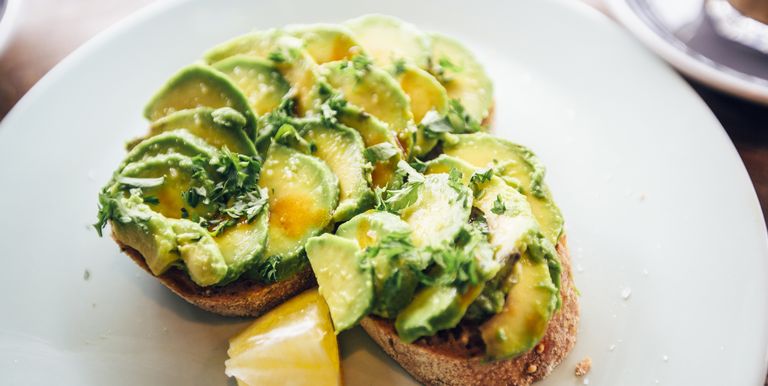

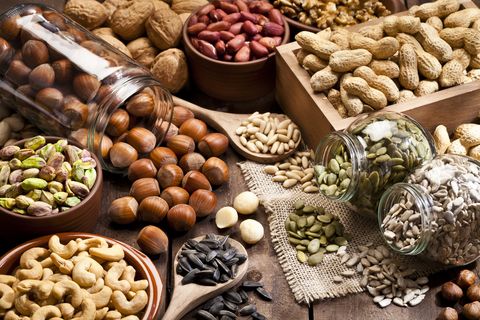
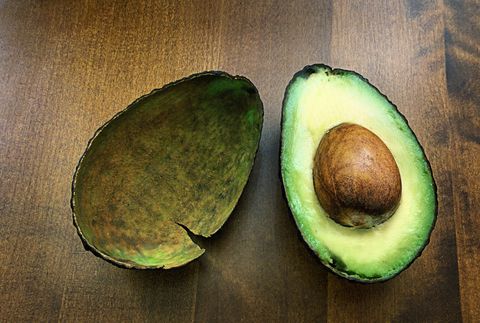

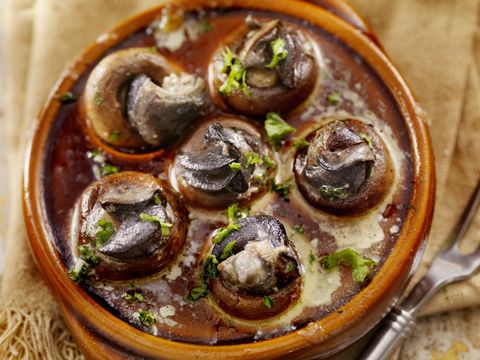
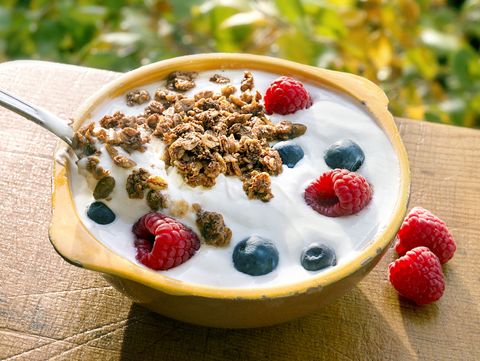
No comments:
Post a Comment